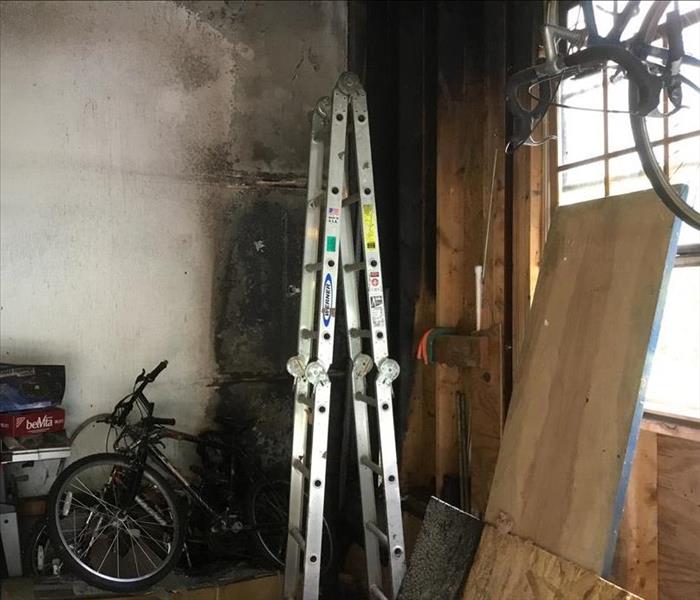Tips to reduce a fire in your home in Brookfield, CT
8/23/2016 (Permalink)
Check the condition of your home's electrical system.
- Look for improperly grounded receptacles. Many modern appliances require a "three pronged" (grounded) receptacle, but people will sometimes use an adapter to bypass this safety feature, or even break a ground prong off an appliance cord. Changing existing circuits to provide grounding is a job that is best left to a professional electrician.
- Look in the attic and crawl spaces for wiring which has been damaged by pests or insects. Some old wiring is insulated with a material which insects eat or chew on, and squirrels or other rodents will often chew the thermoplastic insulation off of modern nonmetallic cable (Romex).
- Look for overloaded circuit breakers, panel boxes, or fuse boxes. Check for breakers or fuses which may have circuits "piggy-backed" on them. These are rated for single circuit protection, but sometimes in outdated or undersized panel boxes, people will put two or even more wires in the terminal of a single breaker or fuse.
- Notice flickering lights, or intermittent power surges. These conditions may be caused by outside influences, but if they occur often, they may indicate a bad connection or a short in the circuit.
- Note breakers which trip, or fuses that blow frequently. This is almost always a sign of an overloaded circuit or other wiring problem, usually of a most serious nature.
- Look at the individual breaker connections, especially in outdoor panel boxes, for corrosion, signs of thermal damage (smut or smokey residue near terminals) splices which are poorly taped or wire nutted, or abraded or damaged wire insulation.
- Check the ground cable. A failure in the building grounding system and bonding can be dangerous in regard to electrical shock, as well as fire. Look for loose split bolts, clamps, or other connecting devices, and corrosion.
- Be especially careful to notice any connections in wiring other than copper. Installed correctly, and with tight connections, aluminum wire is not excessively dangerous, but when connections are made to copper wires, an electrolytic reaction may occur, causing increased resistance in the connection which will generate excessive heat. If you are able to apply an antioxidant compound to aluminum connections, it will help decrease the risk of oxidation causing a short circuit at these locations.






 24/7 Emergency Service
24/7 Emergency Service
